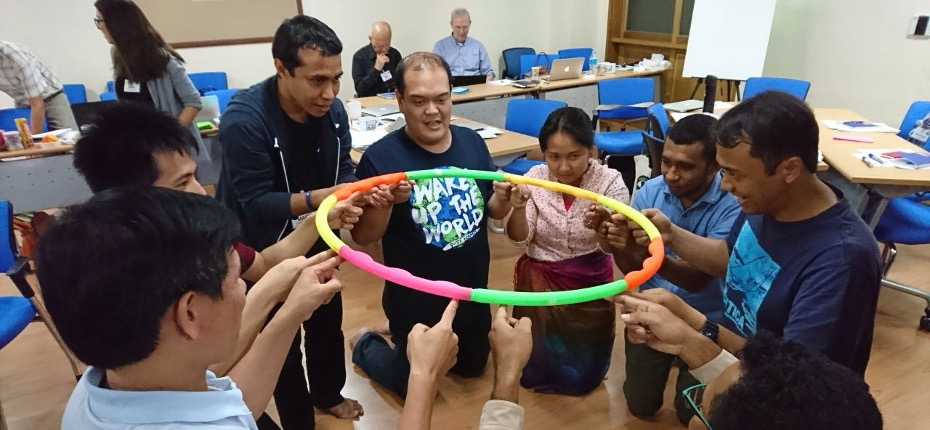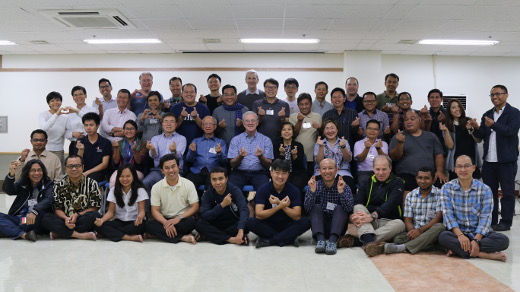
The first part of this module focused on equipping the participants with tools and strategies that will help them in leading and managing change in their organisations. The facilitator Karen Yao emphasised that in managing change, it is important to pay attention to both the objective, what she called the “What?” and the “Why?” of change, and the process, the “How?” of change.
At the end of this, each participant presented, before a small group and a panel of experts, a project plan that integrated their learning from all the modules. While some joked that this was like going through a thesis defence, many considered this a highlight of the programme because it provided an opportunity for everyone to listen to and learn from one another.
One important feature of the JCAP Leadership Development Programme is that it brings together Jesuits and lay collaborators from different Jesuit ministries across Asia Pacific. JCAP President Fr Mark Raper called attention to the value of this in his talk on discernment, collaboration and networking. Quoting GC 36, he pointed out that “because of the magnitude and interconnectedness of the challenges we face, it is important to support and encourage the growing collaboration among Jesuits and Jesuit apostolates across networks”.
Also in Korea to provide the participants with inputs were Fathers Ben Nebres and Roger Champoux, both from the Philippine Province. They took turns to remind the group of the importance of self-care. Fr Nebres spoke of the value of sleep, exercise and diet, while Fr Champoux talked about stress, burnout and spirituality. One key take-away from Fr Champoux’s talk is that not all stress is harmful; stress that gives meaning to one’s life can actually be good for a person. “Chasing meaning is better for one’s health than avoiding discomfort,” he stressed.
On the last day, after a short activity designed to synthesise all four modules, the participants were given an opportunity to address the whole group. The overwhelming feeling shared by many was that of gratitude – gratitude to the Society of Jesus for the trust and confidence in investing in them by sending them to this programme, and gratitude to Dr Edna Franco and her team from the Ateneo Center for Organization Research and Development for their hard work in putting together the programme.
As Sokha Sam from Cambodia, one of the two lay women participants, shared, “I really feel grateful for this programme. I have learned a lot. What I like about it is that the learnings are practical.” Fr Mario Lagaor from Indonesia added, “We are inexperienced, yet the demands that the ministry has imposed upon us is great. I’m thankful for this programme because the lessons I’ve learned here will surely help me in my ministry.”
While the participants clearly felt that being sent to the LDP was a great blessing, they realise that it is also a great responsibility. One cannot simply receive; one must also give. Fr Aik Maung from Myanmar put it beautifully when he said, “Initially, I was chosen for this programme. But gradually, it became my choice.”
Indeed, leadership is about making choices. One cannot be a leader by simply attending seminars and workshops. Leadership develops through the choices that one makes, in the midst of the complexities of one’s mission. The Leadership Development Programme is thus only the first step. The journey must continue. Only then will leaders truly develop.
Related stories:
Forming Ignatian leaders for Asia Pacific
Equipping Jesuit and lay collaborators to become better leaders
Defining and refining Ignatian leadership







